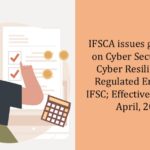The Ministry of Home Affairs (“MHA”) has issued Guidelines for effective control of COVID-19 (“Guidelines”). The fresh Guidelines shall gain effect from 1st April, 2021 and remain in force till 30th April, 2021.
Background:
There has been a fresh surge in COVID-19 cases in some parts of the country after a sustained decline in the number of active cases over a period of few months. At this juncture, the substantial gains achieved against the spread of COVID-19 need to be consolidated, and the chain of transmission of the pandemic effectively broken, with a view to expeditiously restore complete normalcy;
With the last guidelines issued by the MHA on 27.1.2021 which was further extended upto 31st March, 2021, all economic and other activities have been opened up in a phased manner, with the stipulation that the prescribed Standard Operating Procedures (“SOPs”) be scrupulously followed;
With a view to ensure that the resumption of activities is successful and restore complete normalcy, MHA has directed strict enforcement of the “Test-Track-Treat” protocol in all parts of the country and ensure COVID appropriate behaviour is observed by everyone; and that the ongoing vaccination drive is scaled up rapidly.
Key Takeaways of the Guidelines for effective control of COVID-19:
1. Test:
i. With sustained effort, the capacity of total daily tests that can be conducted across the country has gone up substantially. There is need to ensure that the tests are being conducted uniformly across all districts, with adequate testing in districts reporting higher number of cases.
ii. The proportion of RT-PCR tests in the total mix should be scaled up on best effort basis to 70% or more. States and UTs, where the proportion of RT-PCR tests is less, should rapidly increase testing through this protocol, to reach the prescribed level.
2. Track:
i. The new positive cases detected as a result of intensive testing need to be isolated/ quarantined and their contacts traced at the earliest and similarly isolated/ quarantined. Containment Zones have to be demarcated and containment measures implemented within such Zones;
ii. Effective demarcation of Containment Zones, in vulnerable and high incidence areas, is key to breaking the chain of transmission and controlling the spread of the virus. Containment Zones shall be carefully demarcated by the district authorities, at the micro level, taking into consideration the guidelines prescribed by the Ministry of Health and Family Welfare (“MoHFW”) in this regard. The list of Containment Zones will be notified on the websites by the respective District Collectors and by the States/ UTs and such list will also be shared with MoHFW on a regular basis.
Within Containment Zones, containment measures (prescribed by MoHFW) to be scrupulously followed:
• Only essential activities shall be allowed in the Containment Zones;
• Strict perimeter control to ensure that there is no movement of people in or out of these zones, except for medical emergencies and for maintaining supply of essential goods and services;
• There must be intensive house-to-house surveillance by surveillance teams formed for the purpose;
• Testing must be carried out as per prescribed protocol;
• Listing of contacts must be carried out in respect of all persons found positive, along with their tracking, identification, quarantine and follow up of contacts for 14 days (80% of contacts to be traced in 72 hours);
• Surveillance for ILI / SARI cases must be carried out in health facilities or outreach mobile units or through fever clinics in buffer zones;
• local district police and municipal authorities to ensure that the prescribed Containment measures are strictly followed and State/ UT Governments must ensure accountability of the officers concerned in this regard.
3. Treat:
i. Quick isolation of COVID-19 patients must be ensured in treatment facilities / home (subject to fulfilling the home isolation guidelines);
ii. Clinical interventions, as prescribed, must be administered. Capacity building of health workers and professionals should be conducted at all levels on an ongoing basis, with a view to ensure that the prescribed clinical management protocol is understood and administered accordingly;
iii. Effective infection prevention and control practices shall be followed in treatment facilities and by health care workers and professionals.
4. COVID-19 appropriate behaviour:
i. State / UT Governments must take all necessary measures to promote COVID-19 appropriate behaviour and ensure strict enforcement of wearing of face masks, hand hygiene and social distancing;
ii. Wearing of face masks is an essential preventive measure. In order to enforce this core requirement, States and UTs may consider administrative actions, including imposition of appropriate fines on persons not wearing face masks in public and workspaces;
iii. Observance of social distancing in crowded places, markets, weekly bazaars and public transport is critical for containing the spread of the infection. SOP issued by Ministry of Health and Family Welfare (MoHFW) to regulate crowds in marketplaces shall be strictly enforced by States and UTs.
iv. SOPs for regulating travel in aircrafts, trains and metro rails are already in place, which shall be strictly enforced. States and UTs shall issue necessary guidelines for regulating travel in other modes of public transport, e.g., buses, boats etc., and ensure that these are strictly complied with.
5. Strict adherence to prescribed SOPs:
All activities have been permitted outside Containment Zones and SOPs have been prescribed for various activities. These include:
i. movement by passenger trains
ii. air travel
iii. metro trains
iv. schools; higher educational institutions
v. hotels and restaurants
vi. shopping malls, multiplexes and entertainment parks
vii. yoga centres and gymnasiums
viii. exhibitions, assemblies, and congregations, etc.
The SOPs, as updated from time to time, must be strictly enforced by the authorities concerned, who shall be responsible for their strict observance.
6. Vaccination:
i. Government has launched the vaccination drive against COVID-19;
ii. National Expert Group on Vaccine Administration for COVID-19 (NEGVAC) provides guidance on prioritization of population groups, procurement & inventory management, and vaccine selection delivery and tracking. The recommendations of NEGVAC are considered and finalized by the Central Government.
7. Local Restrictions:
i. States and UTs, based on their assessment of the situation, may impose local restrictions at district/ sub-district and city/ ward level, with a view to contain the spread of COVID-19.
ii. No restriction on inter-State and intra-State movement of persons and goods including those for cross land-border trade under Treaties with neighbouring countries. No separate permission/ approval/ e-permit will be required for such movement.
8. Protection of vulnerable persons:
Persons above 65 years of age, persons with co-morbidities, pregnant women, and children below the age of 10 years are advised to take necessary precautions.
9. Use of Arogya Setu:
Use of Aarogya Setu may continue on best effort basis on compatible mobile phones. This will facilitate timely provision of medical attention to those individuals who are at risk.
10. Penalty:
Any person violating these measures will be liable to be proceeded against as per the provisions of the Disaster Management Act, 2005, besides legal action under the provisions of the Indian Penal Code, 1860.
Please refer to Annexure II of the attached Guidelines for a detailed read of the penalties.
National Directives of COVID 19 Management:
1. Face coverings: Wearing of face cover is compulsory in public places; in workplaces; and during transport.
2. Social distancing: Individuals must maintain a minimum distance of 6 feet (2 gaz ki doori) in public places.
3. Shops will ensure physical distancing among customers.
4. Spitting in public places will be punishable with fine, as may be prescribed by the State/ UT local authority in accordance with its laws, rules or regulations.
Additional Directions for workplaces:
1. Work from home (WfH): As far as possible the practice of working from home should be followed.
2. Staggering of work/ business hours will be followed in offices, workplaces, shops, markets and industrial & commercial establishments.
3. Screening & hygiene: Provision for thermal scanning, hand wash or sanitizer will be made at all entry points and of hand wash or sanitizer at exit points and common areas.
4. Frequent sanitization of entire workplace, common facilities and all points which come into human contact e.g. door handles etc., will be ensured, including between shifts.
5. Social distancing: All persons in charge of workplaces will ensure adequate distance between workers and other staff.
Source: Ministry of Home Affairs




